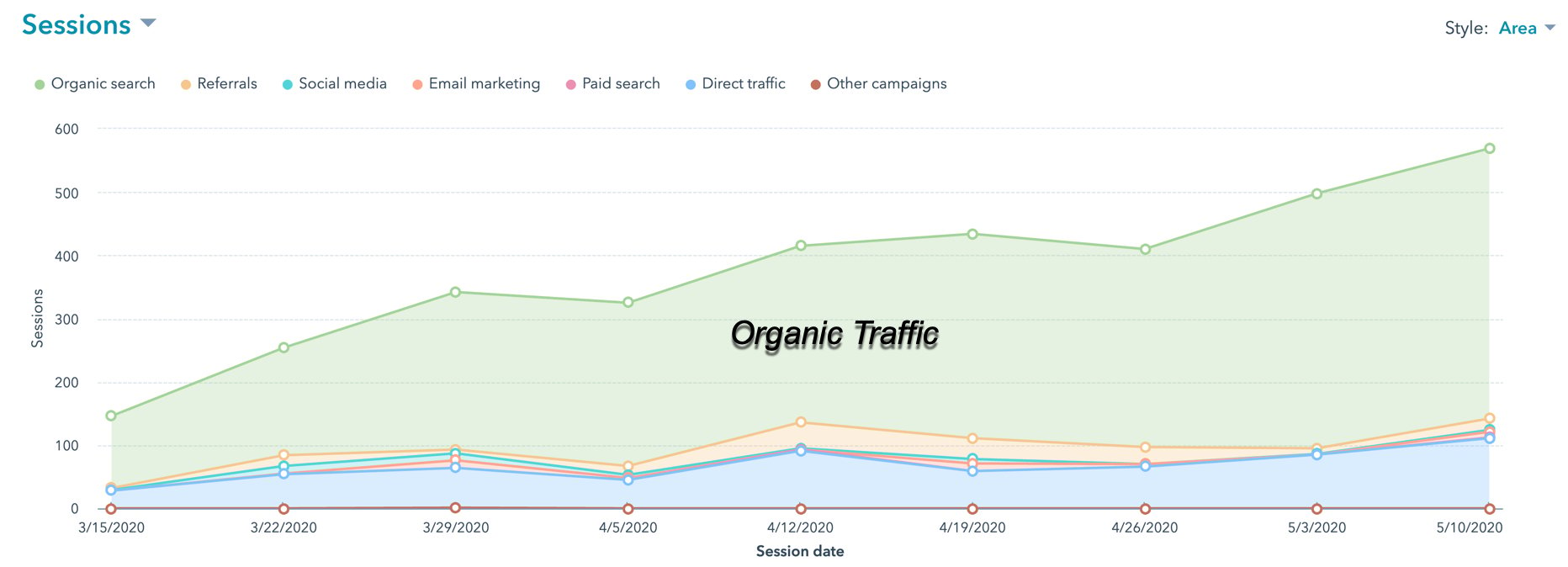Learn how to implement:
Content Marketing
The prospect of quick and easy returns can be a real temptation in the marketing world. Everyone wants to run the campaign that immediately brings in leads and gives the company's bottom line a huge boost. However, the reality is that successful marketing requires diligence, skill, and, above all, patience if you want to see results.
This is especially true of content marketing.
Unlike pay-per-click (PPC) advertising campaigns and other paid initiatives, content marketing is a long-term campaign. It requires a significant investment of time, energy, and resources. Nevertheless, when properly executed it can yield unsurpassed benefits for your company in terms of generating highly targeted and qualified leads for your sales funnel.In this article, we provide answers to the common questions most business leaders have about content marketing:
The fact is that content marketing offers one of the highest ROIs of any form of digital marketing today. Even though it usually takes a while to build momentum, exceptional content can generate more traffic and leads than even the most well-designed paid search campaign. Here are some stats to back this claim up:
This graphic shows a content marketing website with organic traffic growth over a 90 day period
What do the above figures and this organic traffic growth example teach us? Simply put: content marketing is an important piece of many companies' overall business strategy because it works. Still, it requires effort to leverage content marketing into sustainable growth. Like they say: no pain, no gain.
Sometimes company executives approach content marketing with unrealistic expectations. They may think that once a few pieces of content are uploaded to the company website, leads will start pouring in, and profits will soar.
If you are harboring even the tiniest notion that content marketing works that way, get rid of that thought immediately. The fact is, successful content marketing requires two key ingredients: high-quality content, and long-term commitment. Here are 3 reasons why it's important to stick it out with any content marketing program:
At least not in the early stages of implementation. Actually, it could take anywhere from 3 months to a year or more for you to start seeing tangible results from your content marketing program. The timeline will depend on a lot of factors, including the nature of your product, your content's reach, and the makeup of your target audience.
Here's the bottom line: if you abandon ship after a few months, you may never see those results you expected. If you're patient, you'll likely find that it was well worth the wait.
One of the wonderful things about content marketing, (and one of the main reasons why it requires a long-term commitment), is that it slowly builds momentum over time — often without the need for a bigger investment of time or money.
 To illustrate this principle, imagine that you publish 200 blogs in your first year of content marketing, and they generate 1 lead apiece for a total of 200 leads. In your second year of content marketing, you publish 200 more blogs that also generate 1 lead apiece. How many leads will be generated by year's end? 400 leads: 200 from your first year's catalog, and 200 more from your second year.
To illustrate this principle, imagine that you publish 200 blogs in your first year of content marketing, and they generate 1 lead apiece for a total of 200 leads. In your second year of content marketing, you publish 200 more blogs that also generate 1 lead apiece. How many leads will be generated by year's end? 400 leads: 200 from your first year's catalog, and 200 more from your second year.
This "snowball effect" of compounded returns could go on for years — but only if you're willing to stick with your content marketing strategy through the lean times.
It takes time for a business to build a solid reputation among consumers, both in the real world and over the Internet. Content marketing plays a key role in establishing and maintaining credibility for your brand, in two important ways:
While we're on the topic of Google rankings, let's talk more about:

One of the primary goals of any content marketing program should be to gain an SEO advantage. After all, ranking high on Google means a lot of exposure for your company, which in turn means the opportunity for a high volume of lead generation.
 Trying to implement content marketing without a strategy is like trying to run a marathon without a finish line. Yet, that's exactly what many marketers do. Even though the importance of content marketing has been clearly established over the years, only 39% of marketers have a clear and documented content strategy in place. That means over 60% of marketers are driving blind, hoping they'll achieve the desired results without actually having a plan on how to get there. It's like throwing spaghetti against the wall to see which pieces stick. As most content marketing experts will tell you, if you just create articles about random topics you will achieve random results.
Trying to implement content marketing without a strategy is like trying to run a marathon without a finish line. Yet, that's exactly what many marketers do. Even though the importance of content marketing has been clearly established over the years, only 39% of marketers have a clear and documented content strategy in place. That means over 60% of marketers are driving blind, hoping they'll achieve the desired results without actually having a plan on how to get there. It's like throwing spaghetti against the wall to see which pieces stick. As most content marketing experts will tell you, if you just create articles about random topics you will achieve random results.
When you have the answers to the above questions in hand, you'll be able to develop and deliver content that truly hits the mark — and yields exceptional ROI.
Of course, it's not necessarily easy to develop an effective content strategy, or commit to a content marketing program year after year. Fortunately, there is help available. Reach out to our team of friendly content marketing experts at Bristol Strategy today to learn more about how you can successfully commit to content marketing, and see amazing results from your efforts.
Ask us about our unique approach that creates a full-funnel "inbound" engagement model for your business that attracts and converts digitally engaged prospects.